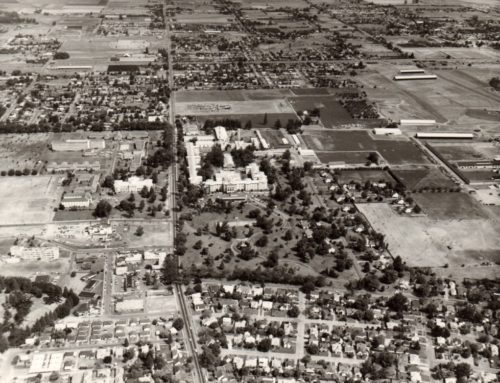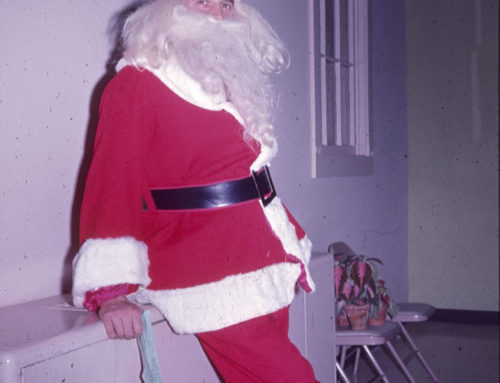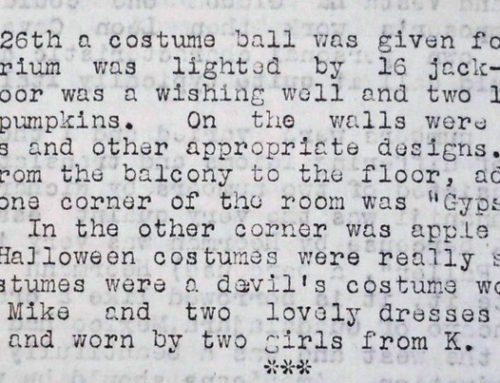EXODUS OF THE INSANEThe Male Patients of the State Asylum Taken to Salem Yesterday. NO TROUBLE WHATEVER IS EXPERIENCED. How the Strange Procession Appeared to an Outsider-Some of the Curious Conceits of Crazy Folks. The male patients of the Oregon state insane asylum were removed yesterday from their old quarters in East Portland to the large and commodious structure recently prepared for their accommodation at Salem. On account of the large crowd from Portland and its suburbs that would have otherwise been in attendance upon such a strange and curious scene, the matter of the exact date of the removal of these patients had been kept a profound secret, except to the authorities and a few newspaper reporters, who gave the required promise as to their silence. In fact, the reporters’ promises of secrecy had been the price of their knowledge and their presence at the asylum on the appointed day. So well, therefore, had the secret |
Safe arrival in SalemFROM THE OREGONIAN’S LOCAL CORRESPONDENT. Salem, October 23 – 5 P.M. The special train containing the 265 male patients from the Oregon hospital for the insane at East Portland, arrived here at 2:45 o’clock P.M. and pulled up at the intersection of Chemeketa Street, where they were removed. Dr. Carpenter, superintendent of the new asylum, was on hand, and with the assistance of Drs. Givens, Geisy, Kenworthy, Richardson and Warriner, superintended the removal of the patients from the cars. Hacks and carriages were provided for the most helpless class of patients, numbering some seventy-five, and their removal was effected without a single accident. The various vehicles containing these patients having driven ahead, those that were able to walk were allowed to leave the train, and having formed in ranks four deep, with the attendants, some twenty in number, the column took up its line of march for the asylum building, about one half a mile |
|
been kept that less than a score of people – and these the residents of the immediate neighborhood – were present when the work of removal began. The special train, which was to convey them to Salem, consisted of six cars and was drawn up about two miles from the east side depot, near Brooklyn, where the patients were received. The [Hue]? of march was along the county road, direct from the asylum to this place. It having been found impossible to transfer all the patients at one time, the division was made between the sexes, and only the male portion was taken to the new asylum yesterday. Of these there were 261, representing almost every known stage or degree of insanity, idiocy, imbecility or helplessness. Those who were strong, able-bodied men were marshaled in line, four abreast, and, closely guarded by attendants, marched to the cars. Some four or five were too sick even to sit up, and these were moved upon their beds in express wagons. Others, and a much larger number, were too feeble to walk, although not afflicted with any other disease than insanity, or too dangerous to be permitted for a moment out from under the strictest surveillance. These latter were all transferred from the asylum to the train in omnibuses of the United Carriage and Baggage Transfer Company, there being five full loads. The removal was under the personal supervision of Hon. R. P Earhart, secretary of state, Dr. Josephi of the asylum and Sheriff George C. Sears. Dr. Carpenter was not present, having preceded the patients to the new asylum and awaiting their arrival there. His excellency Governor Z. F. Moody, who also came to Portland to have a watchful eye over the state’s sorely afflicted wards, likewise preceded them to the capital city on the morning train. In addition to the regular number of physicians and attendants connected with the asylum an extra posse of deputy sheriffs were on hand to assist, or more especially to hold themselves in readiness in case any outbreak should be attempted. Fortunately their services were not needed. The removal was accomplished quickly and quietly, those in charge succeeding better in maintaining order than even the most sanguine of them had dared to hope. Less than an hour was occupied in the transfer from asylum to train, and no patient even took it into his head to try and get away or refused to obey any orders of the warden or assistants. About half-past 10 the most dangerous of the patients were brought out, bound hand and foot, and lifted into the carriages. These were followed by the feeble and the sick, after which the procession of those on foot was formed. A few of the more crafty and cunning of those on foot were strapped in pairs, or had their hands fastened together behind their backs, but otherwise no restraint was placed upon them. It was thought not even necessary to have ropes along the line to keep the patients in the road. This good discipline was mainly due to the fact that asylum authorities, have during the past summer, taken great pains in drilling all those able to walk, just like a company of soldiers. The patients have, in most instances, taken a decided fancy to this daily drill, and some of them have developed into drill sergeants or non-commissioned officers. Their endeavors to keep the careless in perfect line or step were extremely amusing. The line was marshaled, as soon as they started from the asylum, by three of the most important personages, “Peter the Great,” “General Sherman,” and “The Lord.” The first two of these carry out well the characters which their demented minds have chosen to assume, and appear to be perfectly familiar with the history of the times in which those illustrious names were more intimately connected. “The Lord.” However, was almost ignorant of the accepted ideas of either ancient or modern civilization, and acts the part thought of which, even would be scoffed at by the savage of the forest. His one single idea of superiority over the world’s creatures was his physical strength, which, he thinks, were his hands no bound, would be more than sufficient to move the world. Through his personage, who condescends at times to speak to ordinary mortals, the reporter obtained an introduction to Peter the Great, as the latter was marching proudly along in his capacity as grand marshal. His highness buttoned his coat closer about him and said, “Some one told me you were coming. I have heard of you. You are the great banker of New York. When I get to Salem I shall want $500 and my ticket to San Francisco. Will you oblige me with a check for that amount?” The reporter wrote a check in due form on the back of an envelope and handed it to his highness. With an air of condescension it was received and deposited in an inner vest pocket. “I shall see you again,” he continued, “when I get to San Francisco. I must go there to attend to some business matters concerning the Russian throne. There is no use of trying to do anything here. I must have better telegraph facilities.” The reporter mentally made a note that his highness was not so crazy upon the last point as he seemed upon some others. A glance at those riding in the ‘busses was productive of much interest. One poor fellow was occupied at all times in blowing upon his fingers to warm them, while the one who sat next to him had lost some near friend and was continually calling in a low, crooning voice for “Will.” In the same carriage was poor Dave Blanchard, the Portland truck driver, one of the strongest men ever seen on this northwest coast. His dementia was caused by a fall some years ago, in which he suffered a fracture of the skull, from the effects of which he never recovered. Nearly always quiet, when aroused he is more dangerous than a wild beast. Some of the others were incessantly jabbering words without saying anything, or laughing hideously at some wild freaks of their disordered brain. One man kept repeating that he was crazy, seemingly to think that it was very funny and that he was much to be envied. All of them were marshaled safely into the cars without any incident worthy of note. The blinds of the windows were all closed and the train, seemingly deserted a most singular spectacle, went puffing and snorting up the valley, without stopping, until Salem was reached. |
distant, followed by a large concourse of spectators on foot and in carriages. Everything was conducted in a quiet, orderly manner, and with little or no confusion or excitement. The patients were none of them unruly or noisy, and with the exception of one patriotic convalescent, who insisted on giving “three cheers for the red which and blue,” there was no unnecessary noise as the word was given to “forward march.” The patients kept their places with remarkable precision, and on arriving at that asylum were at once placed in the reception ward, where the segregation was made and the patients properly classified. They appeared delighted with their new quarters, and were somewhat inquisitive as to their surroundings. A warm dinner was in complete readiness on their arrival, and the officers, attendants and patients were soon seated around the dinning tables and apparently at home. Great credit is due Drs. Kenworthy, Givens and Giesy and the attendants on the train for the careful management of their almost helpless company. Sheriff Sears and one or more deputies were also present and gave valuable assistance. The entire transfer was made without a single accident, and the male patients are now comfortably well fixed in their new and commodious quarters. The officers in charge inform me that the patients gave them no trouble en route, but were very quiet and spent most of their time viewing the scenery from the windows. They were given plenty of apples to eat, which fruit they stowed away large quantities with apparently excellent relish. The officers and attendants feel greatly relieved in their successful transfer, and the patients themselves are well pleased that the removal has become a thing of the past. The special train, consisting of engine, five passenger coaches and a baggage car, will return to Portland this evening and will be accompanied by several of the officers and employees who will assist in the removal of the female patients who are still in East Portland. Many of the patients look weary, but they have kept up remarkably well, having sustained no injuries that one night’s rest will not remove. Matters are already moving along smoothly and the machine will start right off without apparent clashing. The fact that they were to be brought up was not kept very much secret after all and the spectators were numerous, not only being at the stopping place in great numbers, but scattered along the road from there to the asylum. All having completed their dinners, the train is on the eve of leaving. Our citizens may congratulate themselves on having the insane safely received and in such comfortable quarters. |
[1] Daily Statistics Report 1883-1899. Oregon State Hospital Records. Oregon State Archives (2/10/7/9)




